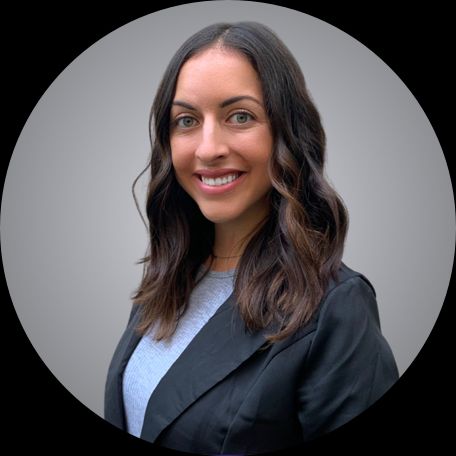How Old Should You Be to See a Geriatric Doctor?
How old should you be to see a geriatric doctor? Seniorly can help you understand if consulting a geriatrician is a good idea for your loved one’s health.

We’re used to consulting medical specialists when we need to: physical therapists after injuries, orthodontists for braces, cardiologists when managing a heart condition. But you might not know that there’s an entire field of medicine doctors can specialize in: Geriatrics.
Geriatricians focus on the health issues facing older adults: the way our bodies react differently to illness, injury, medication, or simple aging as we grow older. We live in a rapidly aging society, in which the percentage of Americans over 55 years and older grew by 27% between 2010 and 2020. This will undoubtedly grow the demand for geriatricians as the Baby Boomer generation continues to age and life expectancy increases.
If you’re wondering how old you have to be to see a geriatric doctor the short answer is that there is no magic number that makes you eligible to see a geriatrician . In fact, not every senior needs to see a geriatrician. If you’re feeling good, able to do the things you want to do, and manage any minor health conditions well, then you can probably stick with your primary care physician. If, however, you have multiple medical conditions that intersect and are exacerbated by age, a geriatrician might be able to help you manage these health issues more effectively.
Signs you should see a geriatrician
The American Geriatric Society recommends consulting a geriatrician if “an older person's condition causes considerable impairment and frailty. These patients tend to be over the age of 75 and coping with a number of diseases and disabilities, including cognitive (mental) problems.”
Another consideration is the caregiving network. If the primary caregiver is unpaid or not a professional in the medical field, or if “family members and friends are feeling considerable stress and strain as caregivers”, then a geriatrician might be a new and valuable part of your support network.
Geriatricians can help address both social and medical problems for seniors, and sometimes work in conjunction with social workers and other specialists. While family doctors are more than capable of helping many older adults manage their health as they age, the frailest seniors can benefit from a geriatrician’s expertise. If you or your loved one take multiple medications, suffer from memory problems, or have issues with balance or mobility, consider consulting a geriatrician.
Other ways that geriatricians can help seniors is by assessing their health condition holistically, as the intersectionality of conditions common to aging is viewed differently. A fairly common condition like incontinence, for example, might be assessed differently by a geriatrician who would understand the impact of a memory diagnosis like Alzheimer on event sequencing needed for toileting. They might also consider the agility issues needed to get to a restroom quickly and assess fall risk.
Geriatricians are well accustomed to engaging family caregivers into care planning for the seniors. Geriatricians are also the preferred choice, when available, to work with assisted living, memory care, or nursing home staff to create care plans that maximize quality of life for older patients. Geriatricians can also be found working in Federally Qualified Community Health Centers with high populations for older patients.
One more sign you should see a geriatrician is if you are or have been recently hospitalized, or if you know you’re about to be for a surgery or other medical need. One study showed that when seniors prepped for a hospital stay with a holistic care team of medical experts, including geriatric specialists, their stays were shorter and their readmission rates were half that of the control group.
Broadly speaking, we define a “senior” as someone over 65. But the seniors who would most benefit from seeing a geriatric doctor are usually older, in their 70s, 80s, or even 90s, and need help managing multiple age-related conditions. When the senior, or their caregivers or care managers, find it difficult to keep up with complex treatment plans, a geriatrician can help navigate healthcare and coordinate with other care providers to ease the burden.
How to find a geriatrician
The American Geriatrics Society (AGS) reports that despite a growing need for their services, there are only about 7,300 geriatric specialists in the US currently. You can visit the the AGS geriatrician finder for help.
If there aren’t any geriatricians in your area, you might be able to consult one remotely using telehealth technology. And keep in mind that time is a factor for seniors with complex healthcare needs: if you feel your loved one would benefit from a geriatrician’s attention, make an appointment sooner rather than later.
Works consulted:
Emma Rodbro manages Strategy & Operations for Papa, an innovative provider of companion care for older adults. Emma’s passion for reducing social isolation in aging populations was undoubtedly influenced by her own experience as a teenager and spending time with her grandfather. Emma went on to earn her Bachelor or Arts in Public Health and Sociology from Brown University and holds a Master’s of Social Work from the University of California, Berkeley. When she’s not at work, Emma is a volunteer at DOROT, a nonprofit organization dedicated to addressing the challenges of an aging population.
To learn more about Seniorly's editorial guidelines, click here.
Sign up for our Healthy Aging Handbook
Seniorly’s Senior Living advisors created a comprehensive handbook to help people age happily while ensuring they love where they live. Enter your email address below to receive your copy and learn more about Healthy Aging and Senior Living.*
*By submitting your email address above, you consent to receive occasional email communications from Seniorly, including educational content and tips, newsletters, and other relevant updates and offerings. You can unsubscribe at any time and we will never sell or distribute your email address to a third party. You can view our Privacy Policy here.
